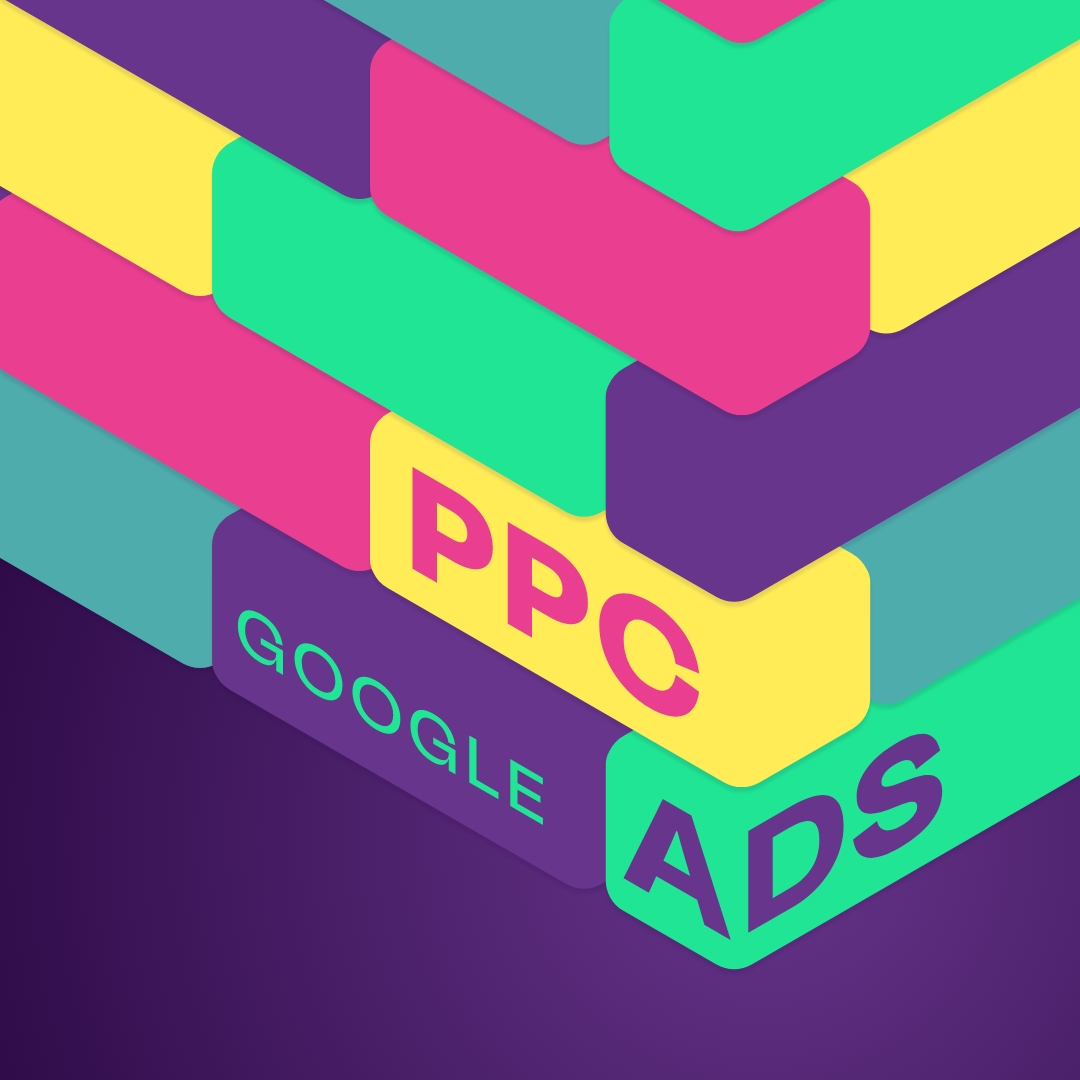In the Trio office, our SEO Manager, Darren, has earned the nickname ‘The Fountain of Knowledge’. A self-proclaimed SEO geek, he’s our go-to for all things search-related.
Darren’s passionate about technical SEO, whether it’s structured data or crawling and indexing, as well as solving complex website issues.
But Darren’s journey into digital marketing wasn’t exactly traditional. What started as a creative passion project quickly turned into a career, leading him to specialise in SEO.
We sat down with Darren to talk about his experiences, the biggest trends shaping SEO, and the common mistakes businesses make when it comes to search.
What drew you to digital marketing?
I fell into it organically. When I moved to Leeds, I was looking for a new career and wasn’t entirely sure where I’d end up. I’ve always been a creative person with an analytical mindset, and I started an Instagram account as a fun project, combining two of my favourite things: craft beer and street art.
What started as a passion project quickly gained traction. I found myself naturally understanding what worked and what kind of content resonated, how to engage an audience, and even how to attract brand collaborations. Writing and content creation were new to me, but I loved it and it made me think, why not turn this into a career?
Since I was self-taught and didn’t have formal qualifications, I looked for ways to break into the industry. That’s when I found an apprenticeship in digital marketing, which brought me to Trio.
I’m really driven by learning, and my goal was to learn everything – PPC, content creation and website management. But over time, I realised that SEO was what I was naturally drawn to. I became obsessed with understanding search, rankings and how to drive organic growth.
Thankfully, Trio gave me the space to specialise in SEO while still being surrounded by a team of experts to learn from. Now, here I am, turning that initial passion into a career that lets me blend creativity with data-driven strategy every day.
Are there any key lessons you’ve learnt that influence your work today?
It might sound like a boring answer, but in SEO, boring is what works. The fundamentals of what Google actually outlines in its guidelines drive long-term success. If you don’t get those right, no amount of hacks or quick wins will make a difference.
One of the biggest lessons I’ve learned is to stick to the basics but never stop learning. SEO is constantly evolving, and if you’re not keeping up, your work will stagnate. You need a rock-solid understanding of on-page SEO, off-page SEO and technical SEO. These core principles don’t change much, but how Google interprets them does. That’s why you have to be adaptable.
Google’s quality control
For example, Google’s Helpful Content Update is designed to reward well-written, user-first content, but that doesn’t mean you can just ‘set and forget’ your pages. Google frequently refines how it assesses quality, and things like keyword intent shifts can suddenly impact rankings. A page that once targeted transactional searches might now be seen as more informational. If you’re not actively monitoring and adjusting, you’ll fall behind.
AI-driven search changes
Similarly, AI-driven search changes like Google’s AI Overviews mean SEO isn’t just about ranking number one anymore. It’s about how your content appears in search results. Understanding how Google interprets, summarises and presents information is now just as important as traditional ranking factors.
Experimental is crucial
While you need to follow best practices, you also need to test, tweak and challenge assumptions. SEO isn’t static. What worked last year might not work today. If you’re not exploring new strategies, such as structured data, entity optimisation, or enhancing internal linking, you’ll miss out on opportunities to gain a competitive advantage.
Rankings are your best friend
Never take rankings for granted. Even if the website is performing well, algorithm updates can throw unexpected challenges your way. The best SEO Managers don’t just react to changes; they anticipate them. This means tracking trends, understanding Google’s long-term vision and ensuring your strategy is built on more than just what works right now.
In short: master the fundamentals, keep learning, stay adaptable and constantly test new ways of doing things. That’s the key to long-term SEO success.
What trends do you find most influential in SEO?
E-E-A-T
Rather than just trends, I think the real focus should be on where SEO strategy needs to be rooted, and for me, that’s E-E-A-T, which stands for Experience, Expertise, Authoritativeness and Trustworthiness. It’s not just a ranking factor but the foundation of how Google determines content quality.
I’ve written a series of blogs on E-E-A-T, which break down how businesses can use it to build a strong organic presence. You can read them here:
- You are what you E-E-A-T (Part 1 – An introduction).
- You are what you E-E-A-T (Part 2: E-E-A-T it up).
- You are what you E-E-A-T (Part 3: E-E-A-T the leftovers).
- Part 4 is coming soon!
E-E-A-T naturally connects to search intent and the Helpful Content Update. While these aren’t exactly new trends, they have become guiding principles for SEO.
Google is better than ever at understanding what users actually want from a search, so simply matching keywords isn’t enough. Content needs to go beyond surface-level answers and prove real expertise, whether that’s through first-hand experience, credible sources or structured, well-researched information. If your content isn’t truly valuable to the user, it won’t perform.
AI Overviews
On the newer side, AI-driven search results, like Google’s Search Generative Experience, are the biggest addition to SERPs right now. We’re still waiting to see the full impact of AI-generated summaries on organic traffic, but it’s clear that SEO strategies need to adjust.
It’s more important now to optimise content in a way that works with AI-driven results rather than against them. While the long-term benefits remain uncertain, brands that adapt early will be in the best position to succeed. Head to our blog to learn more about Google AI Overviews.
Technical SEO
Something I personally geek out on is the growing importance of technical SEO. Google’s increasing emphasis on user experience, including Core Web Vitals, website speed and mobile-first indexing, means SEO isn’t just about content but also performance.
A fast, well-structured website can be the difference between ranking on page one or getting buried in search. While content and strategy are crucial, if the technical side isn’t up to scratch, you’re always going to be at a disadvantage.
SEO is constantly changing, but the core principles remain the same. The key to long-term success will always be focusing on high-quality, intent-driven content, adapting to new SERP features like AI and having a technically sound website.
What do you believe is the next big thing in SEO?
I see several key developments shaping the future of SEO:
Structured Data/Schema
Structured data is becoming increasingly vital in helping search engines comprehend the context and intent behind content. By implementing structured data, websites can provide clear signals about their content, enabling search engines to deliver more relevant results.
Websites with structured data are 58% more likely to earn rich snippets, which can improve click-through rates by up to 30%. Despite this, less than 40% of websites are currently using structured data effectively, presenting a significant opportunity for those willing to implement it.
Automation and AI Integration in SEO Processes
While AI won’t replace the skilled work of SEO professionals, it can streamline complex tasks. For instance, large language models (LLMs) can generate regular expressions (regex) for tools like Screaming Frog to extract data and perform analysis. This integration allows SEOs to focus more on strategy and less on repetitive tasks.
Growing Importance of Accessibility in SEO
Web accessibility is gaining prominence, not only as an ethical imperative but also as an SEO advantage. Accessible websites are designed to be usable by people with disabilities, which improves overall user experience.
Features such as descriptive anchor texts and alt attributes for images make content more understandable for all users and enhance search engine crawling efficiency. Accessible websites often see increased user engagement and retention, factors that positively influence search rankings.
Is there anything you think the audience gets wrong with SEO?
One of the biggest mistakes I see is businesses chasing vanity metrics, particularly fixating on high-volume keywords without considering user intent. Yes, more traffic is great, but ultimately, it’s about the quality of that traffic and how it converts.
A blog explaining an acronym might drive thousands of visits, but if those users are just looking for a definition with no intention of converting, that traffic isn’t valuable. Instead, SEO should focus on addressing the pain points of the target audience and leading them naturally towards a relevant service or solution.
Another common issue is the obsession with quick wins and instant results. SEO isn’t a one-time fix. It’s a long-term strategy designed to build sustainable growth and authority in your field. While there are short-term tactics that can give a boost, the real value comes from future-proofing your website with a well-rounded strategy. Businesses that focus only on short-term gains often find themselves constantly chasing rankings instead of building a strong, lasting presence in search.
Do you have any tips for best technical SEO practices?
A successful SEO campaign needs to have a balance between technical optimisation and high-quality content that puts the user first. If you’re working with a brand-new website, the first step should always be making sure the fundamentals are in place and following technical SEO best practices.
It’s also important to have a well-structured website with content that aligns with user intent. Without a solid foundation, no amount of out-of-the-box thinking will drive long-term success.
One of the biggest mistakes I see, especially during website migrations or major website updates, is failing to use historical data effectively. Too often, businesses focus on the new structure or design without taking into account what has worked or not worked in the past. This can lead to losing valuable rankings, traffic and authority, which takes years to build.
I’ve had to step in many times after migration has already caused major issues, essentially reverse engineering the data to recover what was lost. This means diving deep into Google Search Console, historical rankings, traffic trends and past website performance to identify the pages that were driving value before the update.
It’s not just about restoring rankings but also cleaning up past mistakes that were carried forward. Things like lingering crawl issues, outdated redirects, or unresolved technical errors should be fixed before the update.
For businesses planning a migration or website restructure, factoring in historical data should be a core part of the strategy from the start. Instead of waiting until rankings drop to investigate what went wrong.
Using tools like Google Search Console, analytics data and website crawls before making changes can highlight risks early on. Cleaning up any lingering SEO issues, mapping out redirects correctly and making data-driven decisions about what to keep or discard will save a lot of stress down the line.
If the strategy is for a new website, setting clear goals from the beginning is just as important. You need a strong technical foundation before attempting more advanced strategies. A/B testing, tracking performance over time and ensuring that changes align with user intent are all key to long-term growth.
SEO isn’t about quick wins. It’s about building a scalable, future-proof strategy that works alongside other marketing efforts like social media, PPC and content writing. A well-rounded approach ensures that each channel complements the other, driving not just rankings but overall brand visibility and conversions.
Looking to improve your website's rankings?
At Trio, we take a technical, data-led approach to SEO, making sure your website doesn’t just look pretty but is optimised for search engines.
Get in touch today, and let’s talk SEO!



